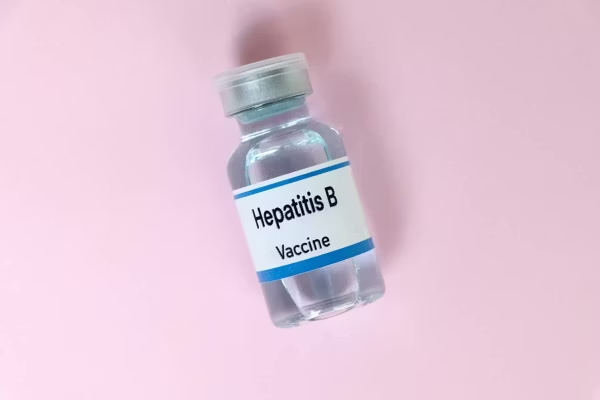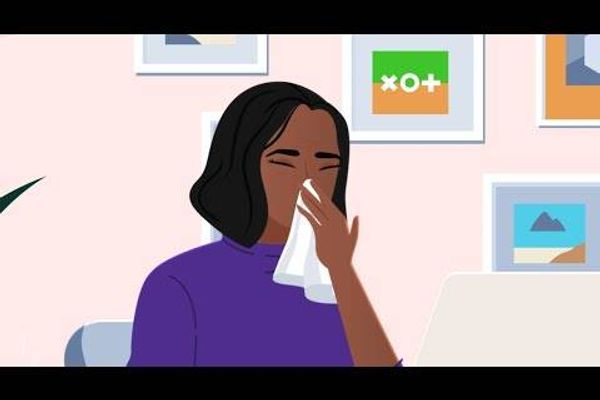I was only 14 years old when the first debilitating symptoms started in my stomach. The pain was like nothing I'd ever experienced before — like my insides were being carved out of me. My pain became an emotion.
I was in bed for weeks. I was a teenager; I had a lot of friends, I had an active social life, I was involved in school activities, and I wasn't leaving my bed.
I was a dancer, and I had to stop dancing because the pain in my neck, shoulders, back, and legs was so severe that I was having trouble just walking and moving. It was the chronic back pain that led to my first misdiagnosis: fibromyalgia.
Over the next 19 years, I saw numerous specialists and received between 20 and 30 other misdiagnoses.
I never quite recovered from that first painful episode. Throughout my life, I've gone through periods where I was incredibly ill and periods where I felt pretty normal.
Once I started working full-time in college, I had more frequent and severe attacks. By the time I got to graduate school five years later, I was in my late 20s, and I was almost always in an attack. The pain was severe, but I accepted it as my baseline.
Because of early childhood trauma, I developed an eating disorder, not knowing that an extremely low carb diet can be a trigger for acute intermittent porphyria attacks. This caused me to disassociate from my body, ignore my pain and forge on. I went to grad school and got two master's degrees (in urban planning and public health). I thought if I could achieve that, I could beat whatever was trying to hold me down.
At one point, a doctor looked at my red urine and told me it was blood from a kidney stone rolling around in my bladder. By that time, I may have had been having an attack for multiple weeks, but I continued to live my life as best as I could.
I wore my pain like a badge of honor and prided myself on being an overachiever. There is often a societal expectation for women to dismiss our needs.
By this time, I had been telling doctors about my stomach pain for more than 10 years. They kept saying that the tests showed that everything was normal. At that point, I had seen more than 20 specialists and I resigned myself to having these really painful episodes. I thought that it was in my head, that I was causing it. I think that if I had been willing to trust myself and be more assertive with doctors, I may have gotten my diagnosis sooner.
Eventually my symptoms were so severe that I wasn't able to eat or sleep. I was also experiencing nausea and vomiting. When I got to that point, I would take some time off work and lay on my couch. It's crazy; I should have been hospitalized.
It was incredibly dangerous that I wasn't seeking medical assistance, but I didn't know any better. I was frustrated that all the tests done so far had come back normal.
At the time, I didn't know that leaving my undiagnosed disease untreated and living through massive severe painful attacks was paralyzing my colon, which left me bed-ridden and in pain. After not being able to eat for four or five days, I went to the hospital. It was the first time in 19 years when I said, "I'm in pain", and the doctor could say, "We see that there's something wrong."
Finally, someone was taking me and my pain seriously.
Over the next seven months, I was in four different hospitals. That's when I finally got my diagnosis of acute intermittent porphyria (AIP) — one of a group of four inherited genetic disorders known as acute hepatic porphyria that result from a buildup of neurotoxins.
Receiving my diagnosis was incredibly validating and a tremendous weight off my shoulders, I cried tears of joy when my doctor told me the test came back indicating porphyria.
Now I'm a full-time AIP patient and advocate for rare disease awareness. When I'm not advocating, the time I spend in our health system is astounding. I'm at doctor's appointments or in the hospital for hours each week. It's not the life I imagined for myself.
It's just so isolating, especially when your entire life changes because of something that you have to manage, and your doctors don't know enough about it to tell you how your life is going to change. When you have a rare disease, there are very few doctors that are experts; the patients have to become experts.
There are as many as 7000 rare diseases. There's no way that your doctor can know all of them. If you're having weird symptoms and you're feeling dismissed, get another opinion. Second opinions are okay. Third opinions are okay. You deserve answers. You deserve the chance to live your best life possible.
There is no cure for acute hepatic porphyria but there are ways to manage and treat the disease. Talk to your health care provider about treatment options that may be right for you.
If I can tell my story and make one person feel less alone in the world, I feel like I will have realized my purpose.
This resource was created with the support of Alnylam Pharmaceuticals, Inc. AS1-USA-00703
This information is provided for educational purposes only. It is not intended to replace discussions with a healthcare provider.







